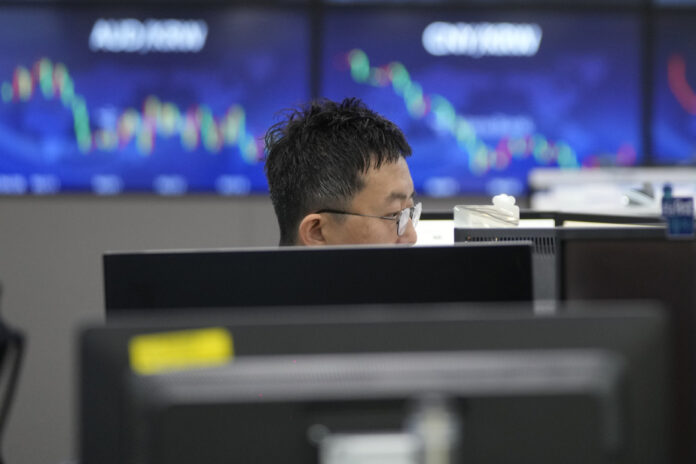(New York) If the mood was expectant on global stock markets Wednesday before the “Fed Minutes” were released, Wall Street fell on their release amid the central bank’s determination to fight inflation.
In Europe, the Paris Stock Exchange fell slightly by 0.10%, London by 0.44%, Milan by 0.93%, while Frankfurt gained 0.14%.
On the New York Stock Exchange, the Dow Jones fell 0.52%, the S
“Most participants” in the Monetary Policy Committee “recognized that there were still risks” of persistent inflation that may “require further tightening of monetary policy,” the minutes write.
These therefore “weighed down on Wall Street”, summed up Peter Cardillo of Spartan Capital. Bond yields rose, with ten-year US Treasury yields climbing to 4.26%, a high since 2008.
“The minutes were tighter than we thought,” added Art Hogan of B. Riley Wealth Management.
“Looks like there is a small cohort that feels we will need to raise rates further this year. That’s enough to invite investors to take profits” on stock markets, he added.
On the positive side, industrial production picked up again in the United States in July and housing starts rose 3.9%. In the eurozone, industrial production figures for June and second-quarter growth figures came in line with expectations, reports Vincent Juvyns.
In the United Kingdom, the pound sterling and bond rates rose after the announcement of a sharp slowdown in inflation in July, to 6.8% over one year against 7.9% in June.
Despite this sharp drop, “yesterday’s strong wage growth and resilient services consumer price index data today will likely push the Bank of England, in our view, to proceed with two hikes extra,” comment European economists at Nomura Bank.
The British currency gained 0.16% against the greenback, to 1.2725 dollars to the pound around 4:40 p.m. (Eastern time), and climbed 0.42% against the euro to 85.48 pence for one euro.
The interest rate on the British 10-year bond stood at 4.64%, down from 4.59% at the close the previous day.
Chinese economic activity also continues to worry investors, between disappointing macroeconomic data and concerns about the real estate sector.
One of China’s largest real estate groups, Country Garden, whose astronomical indebtedness is worrying the markets, warned on Wednesday that “considerable uncertainties” weighed on its repayments.
Driven by rising prices, the Danish brewer Carlsberg, which is struggling to get out of Russia, announced on Wednesday a net profit of 3.5 billion crowns (469 million euros) in the first half. Its stock lost 1.96% in Copenhagen.
Department store stock Target rose 2.92% on Wall Street after posting better-than-expected earnings per share on declining quarterly revenue.
Oil prices retreated amid concerns over Chinese demand, mixed US inventories and a strong dollar. Weekly U.S. crude oil commercial supplies fell by 6 million barrels, more than analysts expected, but gasoline inventories did not fall as much as expected.
A barrel of Brent from the North Sea, for delivery in October, fell 1.69% to 83.45 dollars.
Its American equivalent, the barrel of West Texas Intermediate (WTI), for delivery in September, fell back below the 80 dollar mark, at 79.38 dollars, down 1.98%.
The ruble climbed 2.60% around 4:40 p.m. (Eastern time) to 95.59 rubles to the dollar, supported by the announcement on Tuesday of a key rate hike by the Russian Central Bank.















